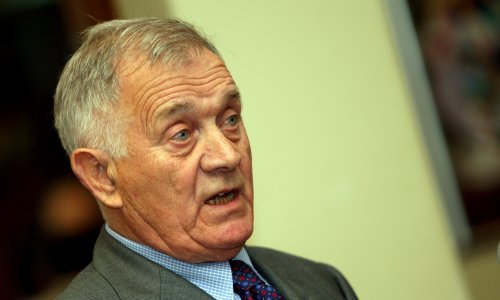The acquittal of Croatian generals Ante Gotovina and Mladen Markac by the International Criminal Tribunal for the former Yugoslavia (ICTY) in The Hague was to be expected because the problem in this case, just like in that of former Kosovo Liberation Army commander Ramush Haradinaj, was that former Chief Prosecutor Carla del Ponte tried to convict members of all ethnic groups, a former ICTY prosecutor and close associate to Del Ponte said in a newspaper interview on Friday.
This is a similar problem of indictments dating from the term of Del Ponte, because she wanted members of all ethnic groups to be convicted. That would have led to an artificial apportionment of criminal responsibility among all warring parties, which is very questionable as a strategy, Geoffrey Nice said in an interview with the Sarajevo daily Dnevni Avaz.
At the same time, Nice, who had been a lead prosecutor in the case of the late Serbian president Slobodan Milosevic, described as unfounded attempts at discrediting the ICTY that followed the acquittals in the two cases.
Acquittals are in a way a confirmation of the objectivity of the tribunal as an institution. There should be concern only if all the accused were convicted, he said, recalling the acquittal of former Serbian president Milan Milutinovic that did not attract much media attention in Pristina.
On the subject of the Gotovina-Markac case, Nice said that there simply were not enough elements for a conviction because the prosecutors had made some basic mistakes in approaching this case.
Commenting on announcements from Serbia about the suspension of cooperation with the ICTY over the acquittal of the two Croatian generals and Haradinaj, Nice said that it was proof that the Hague tribunal had become important in writing history, and that Serbia's goal in its cooperation with the ICTY so far had been to try and apportion the moral responsibility among all the parties for the wars of the 1990s, as evidenced in its blocking of publication of some important evidence.
Serbia also insisted on charges that were based on lack of evidence or the evidence did not exist at all, Nice said, hinting that behind-the-scene maneuvering by Serbia led to the issuing of some of the indictments.
Serbia tolerated the tribunal as long as those methods had some effect. But this tolerance should not be equalised with respect for the rule of law, as revealed by the suspension of cooperation declared by Serbia, the former prosecutor said.
Noting the fact that Carla del Ponte was now involved in investigations of possible war crimes in Syria, Nice advised her colleagues to be very cautious when considering her contribution, especially in light of the Haradinaj case.
It is too late for the ICTY to rectify all the irregularities that are the consequence of the eight-year term of Carla del Ponte. It is hard to say what lessons the Office of the Prosecutor and the ICTY can learn from their mistakes, knowing that there have been no new indictments since her term, but other tribunals, and especially the International Criminal Court, should always bear in mind that the prosecution process must be handled with the greatest care. No mistakes should be made because it is people's lives that are at stake. In some cases we must accept that learning from mistakes cannot be tolerated, Nice said.



































